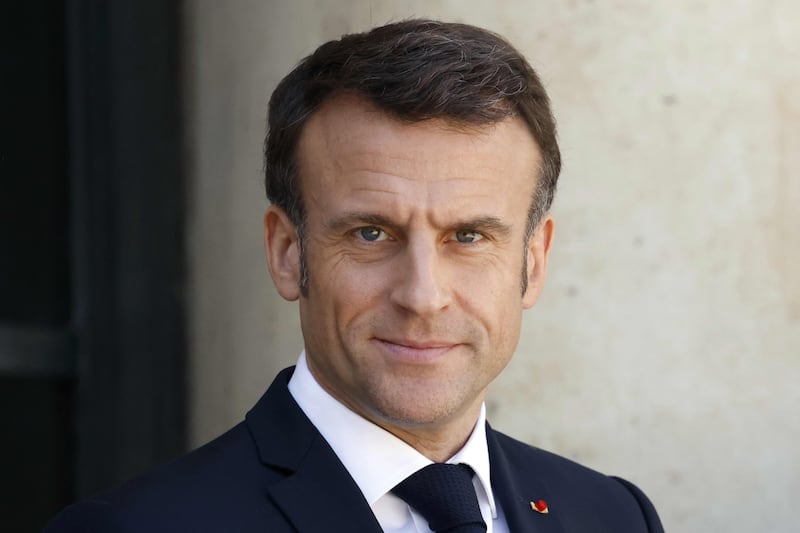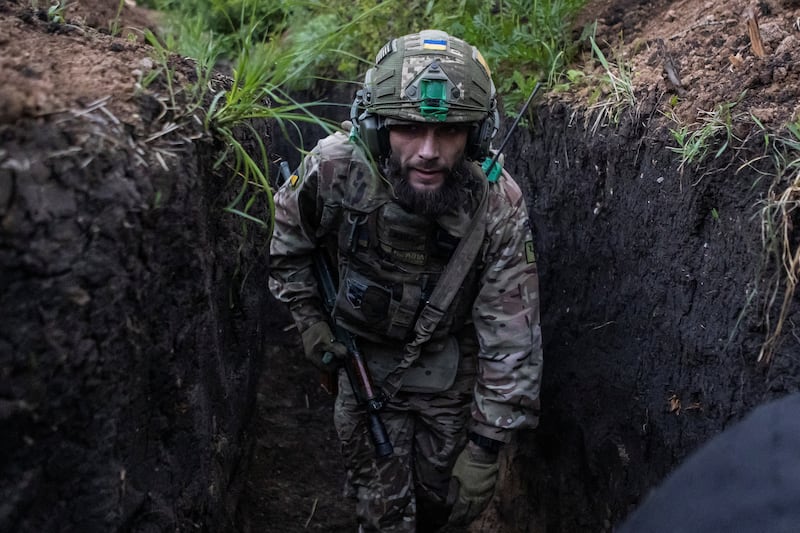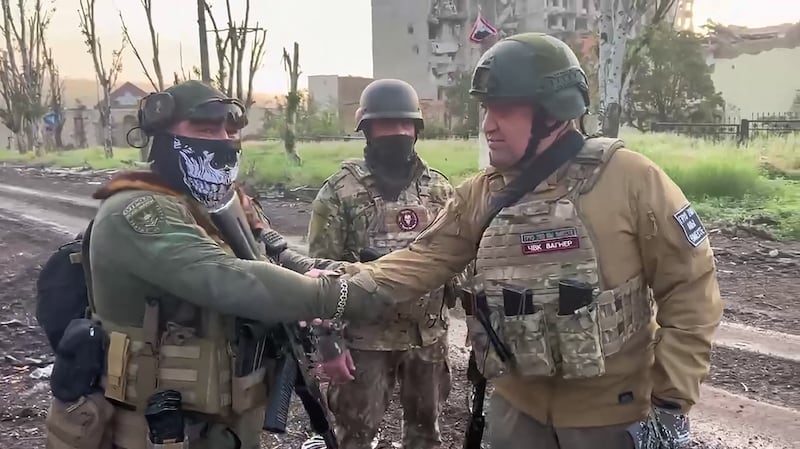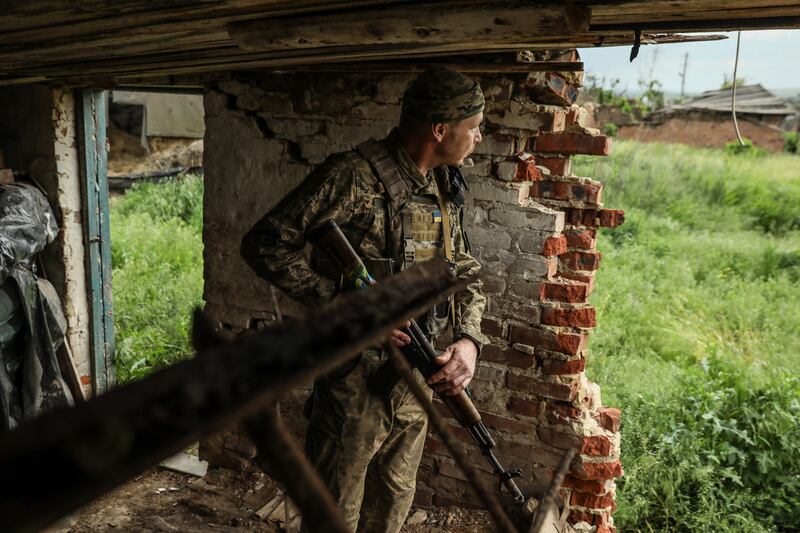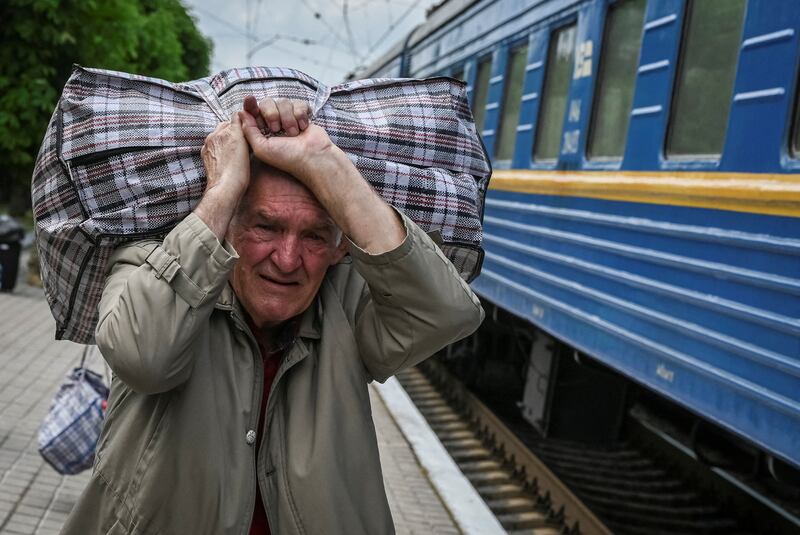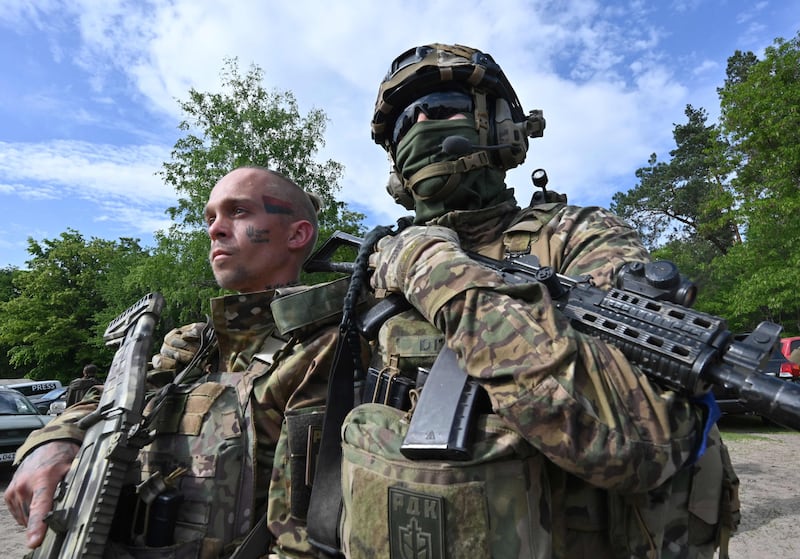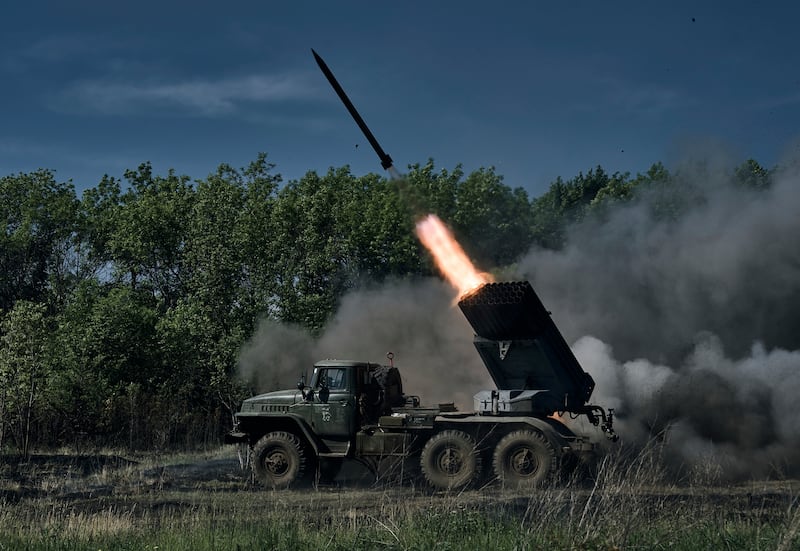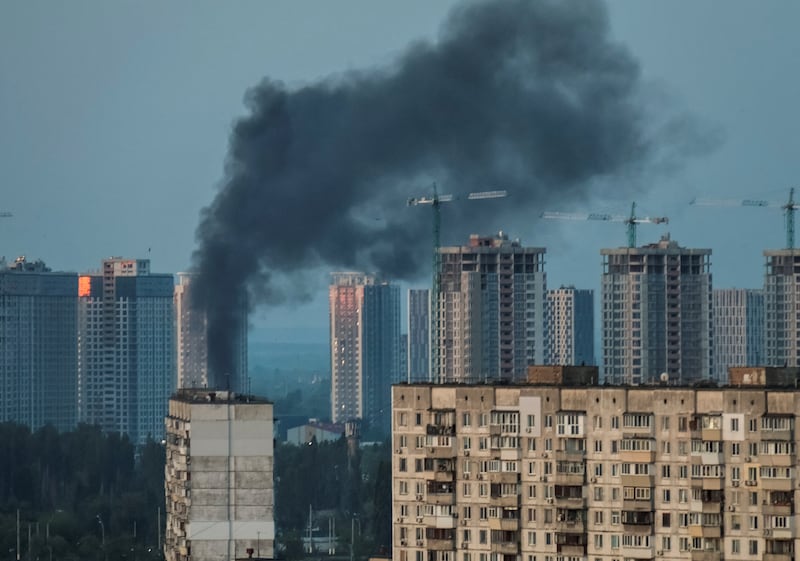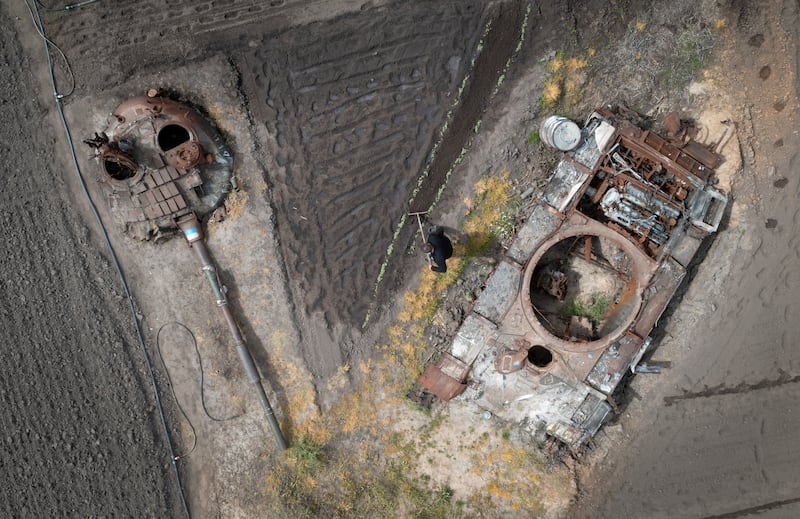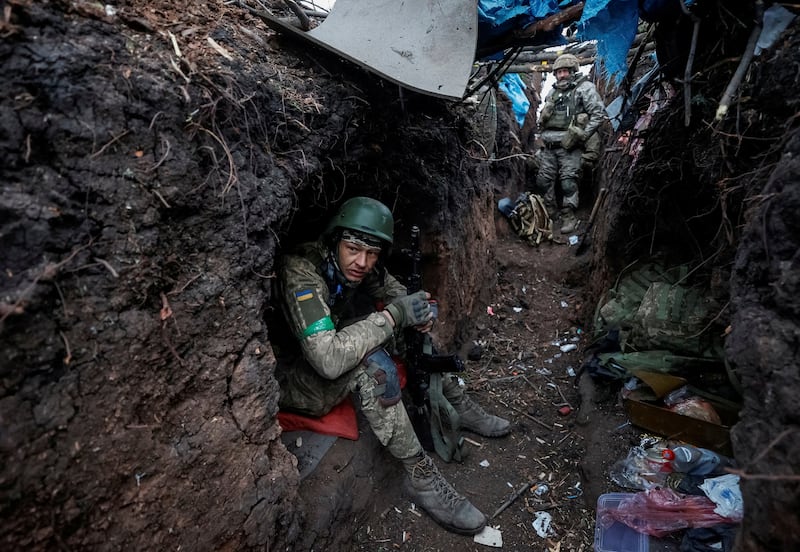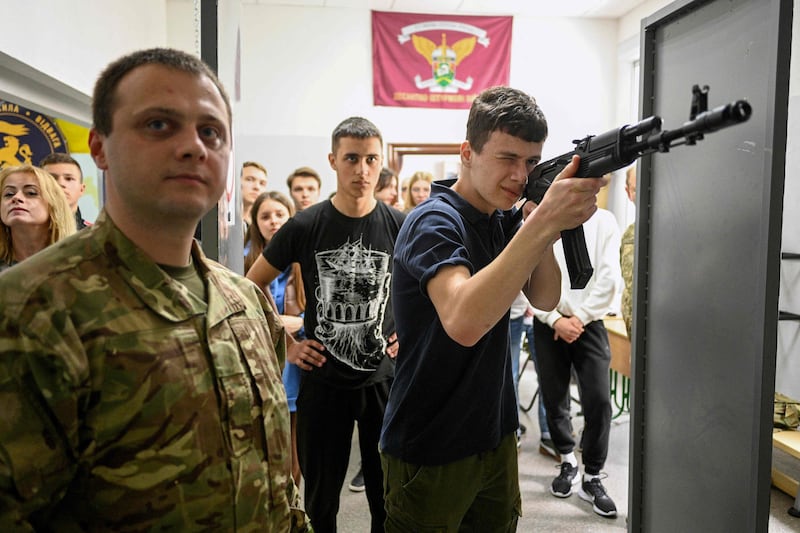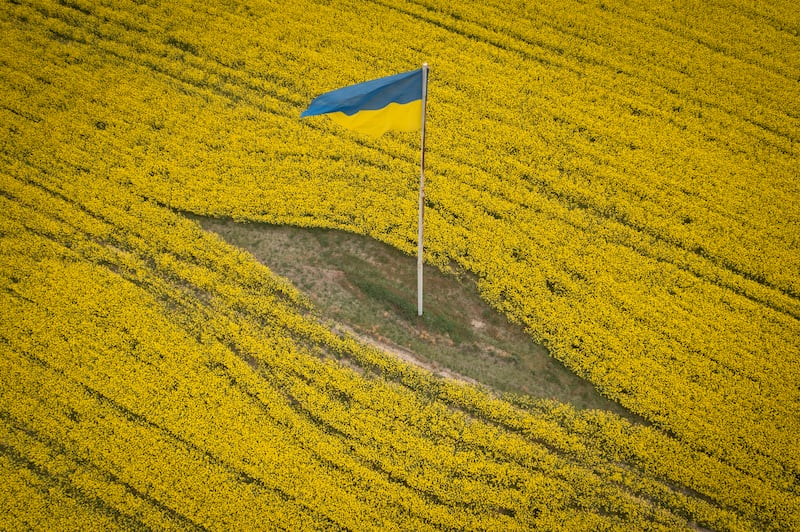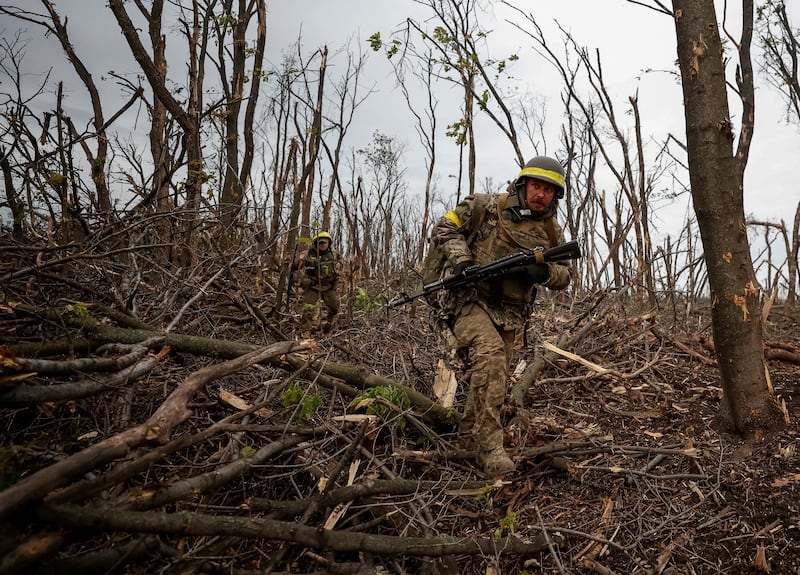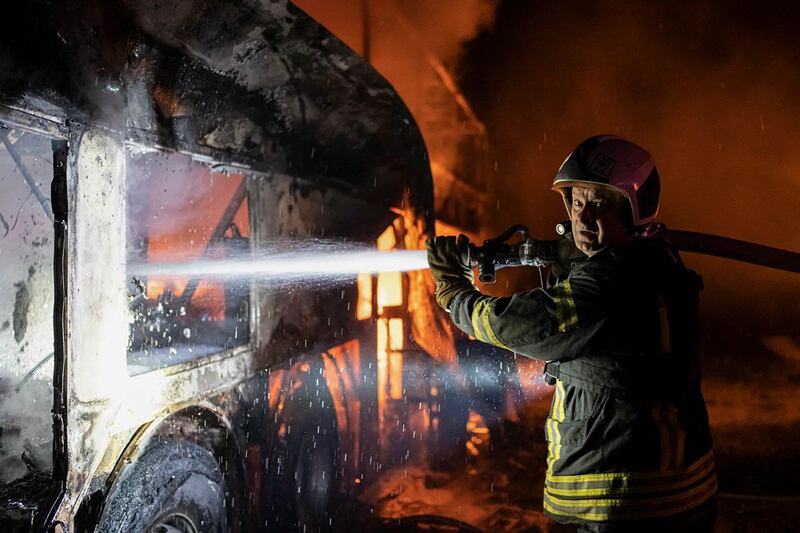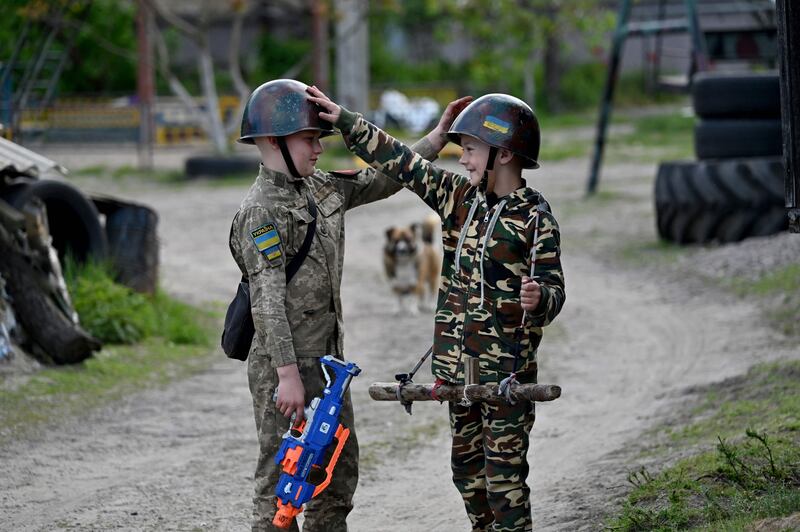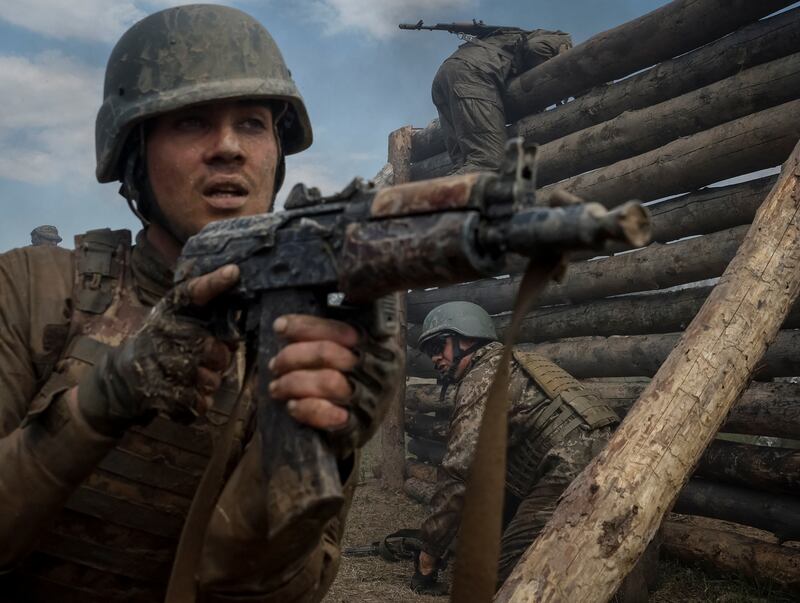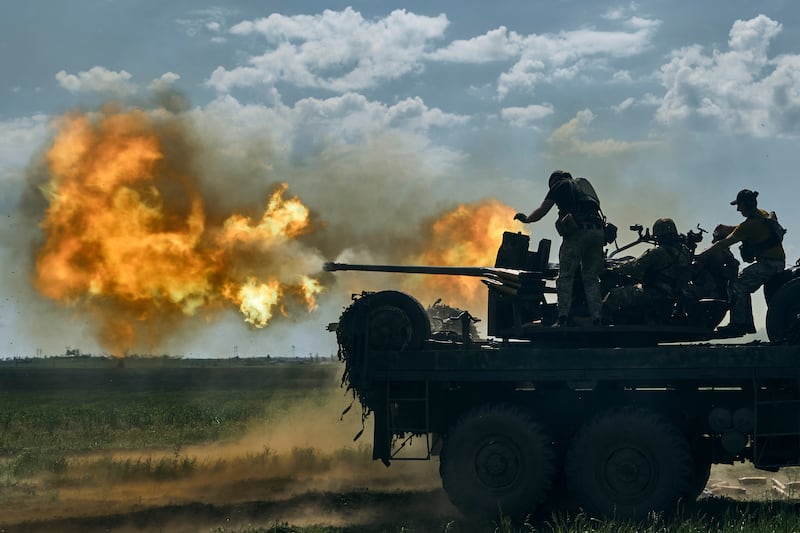The world will be watching French President Emmanuel Macron closely next week to see if he is able to strengthen solidarity with Eastern Europe, as he seeks to lead European efforts to boost the continent’s military preparedness and co-ordination on its eastern flank, diplomats and analysts have told The National.
Mr Macron has two important meetings on his agenda.
The first is a state visit to Slovakia on Wednesday, during which he will give a speech at the GlobSec security conference in Bratislava, where his advisers say he will highlight the EU and France’s strong military support for Ukraine and neighbouring countries.
France has close to 300 military personnel deployed in Estonia and 1,250 in Romania, Elysee sources say.
French warplanes conduct daily surveillance operations over Eastern Europe, thanks to the deployment of France’s flagship aircraft carrier the Charles De Gaulle, currently in the Red Sea.
For Mr Macron, the GlobSec forum is a platform to address Eastern and Northern European countries that are anxious over what they perceive as Russian military expansionism.
The French leader is expected to continue pushing for increased military and industrial spending in Europe.
“We only possess with certainty what we produce,” said an Elysee source. “If we want to produce for us, for Ukraine, we must get to work.”
Ukraine’s request to join Nato will also be on everybody’s mind as the alliance’s heads of states prepare to gather for their next summit in Lithuania in July.
“The current conversation does not seem to be going towards a clear signal for Ukraine gaining membership,” said Rym Momtaz, consultant research fellow for European foreign policy and security at the International Institute for Strategic Studies.
“But members of the alliance are trying to figure out a new formula that would satisfy Ukraine’s deterrence and security needs.”
Several models are on the table, she added, possibly inspired by either Finland's decades of neutrality combined with a large land force and EU membership, or Israel's highly equipped security apparatus, largely backed by a foreign power, the US.
The French President will travel on Thursday to Moldova to attend the second European Political Community Summit.
Loosely based on a 1989 idea of former French president Francois Mitterand, the discussion platform between 47 heads of state – excluding Russia and its partner Belarus – is Mr Macron’s brainchild.
The choice of Moldova is “obviously not accidental”, said an Elysee source.
European leaders want to send a strong political signal of support to Moldova, Europe’s poorest country which is regularly the target of destabilisation campaigns by Russia.
Chisinau requested to join the EU after Russia’s invasion of Ukraine last year.
Mr Macron’s advisers highlighted the strong relationship between the French President and his pro-European Moldovan counterpart, Maia Sandu, as well as France’s support in helping Moldova organise the summit, which they described as challenging when it comes to security.
But to succeed in strengthening ties with Eastern European countries, Mr Macron will have to avoid awkward phrasing that has often ruffled feathers of his allies in the past, warned Florent Parmentier, secretary-general of the French research institute Cevipof, affiliated with Sciences Po in Paris.
Despite strong French military support for Ukraine, Mr Macron has angered the war-torn country’s leaders in the past with calls for the West to not “humiliate” Russian President Vladimir Putin.
The French President was more recently criticised for cosying up to Beijing after he cautioned Europe to not get caught up in US-China tension over Taiwan.
“Many French diplomats have been telling Eastern European countries: look at what we do, not what Macron said in his latest media interview,” Mr Parmentier told The National.
“It’s a week during which he must avoid any faux pas in order to convince his European partners to go in the direction that he wants it to go.
“And that direction is clear: it’s more strategic autonomy.”
“Strategic autonomy” is an oft-heard expression championed by Mr Macron in the past year to describe Europe’s need to become more self-reliant in a number of sectors.
With the war in Ukraine, Europe’s dependency on the US for its defence has become a headache for many leaders, who fear that American support might wane should its leadership change in its next presidential election.
“France is aware that Donald Trump might come back in 2024. We cannot rule out that option,” said Mr Parmentier.
In Mr Macron’s view, one of best ways to strengthen Europe is to deepen ties between West and East – a move which was not high on France’s list of priorities before the war in Russia.
Paris has traditionally been hostile to enlargement but Mr Macron has, on the contrary, embraced recent bids to join the EU made by Ukraine, Moldova and Bosnia and Herzegovina.
“One of the legacies of high intensity warfare between Russia and Ukraine is a complete rethink of Europe’s military and diplomatic tools,” said Mr Parmentier.
“There has been a huge effort made by France’s diplomacy to turn towards Eastern and Central Europe.”
These efforts have seemingly paid off.
Eastern European and Baltic countries were quick to understand that France is a key player in helping them getting their point across to Europe about their fears about Russia.
At GlobSec, Mr Macron is the only head of state to have been given a platform to speak alone to deliver his highly anticipated speech.
His recent remarks at the G7 summit in Japan, where he warned against a “frozen conflict” in Ukraine, were well-received in Eastern Europe, said Ms Momtaz.
“Macron has the political will to play this central role”, Ms Momtaz said, pointing to the fact that he was the first French president in more than a decade to visit several countries in the Baltic region and in Eastern Europe.
Yet simmering tension remains.
Mr Macron has not forgotten that Poland supported his far-right rival Marine Le Pen in the second round of the last French presidential election, said Mr Parmentier. Poland still remembers that it was sidelined when Mr Macron launched a dialogue with Russia in 2019.
“There is a level of distrust and suspicion that remains,” said Ms Momtaz.
“France perceives generally Eastern European and Baltic states as too obsessed with the Russian threat, and they believe that France is too naive about Russia’s true designs when it comes to the region.
“It’s an ongoing negotiation”.
